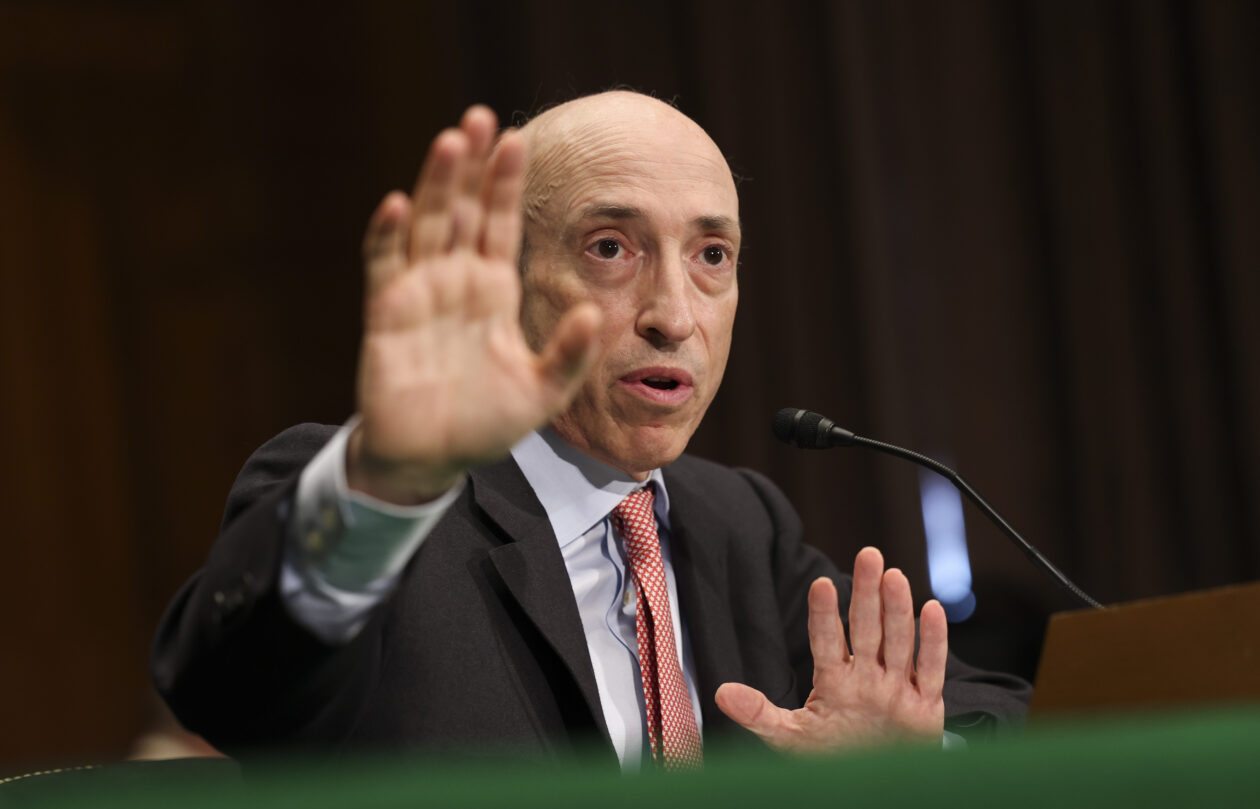U.S. Securities and Exchange Commission (SEC) Chairman Gary Gensler said proof-of-stake (PoS) cryptocurrencies could be considered securities, which would include the US$200 billion Ethereum network after it completed its shift to a PoS system on Thursday.
After a congressional hearing on Thursday, Gensler said such assets – which allow holders to passively earn income through staking – could pass the Howey test, according to a report in the Wall Street Journal.
The test is used by courts use to determine if an asset is a security by examining whether an investor would expect to earn income from holding the asset.
Urszula McCormack, a financial regulatory lawyer and partner at King & Wood Mallesons in Hong Kong and Sydney, told Forkast in an interview she thought the timing of the comments on the same day as the Merge was more than just a coincidence.
“Personally, I see statements like that without context, without further guidance, as hugely damaging,” McCormack said. “When you start to throw shade in that way without further explaining if and when and how you’re really casting a shadow over anything that involves staking,” she added.
Gensler’s comments could dampen some of the Ethereum community’s excitement following the Merge as it represents a broader effort by global lawmakers to regulate the crypto industry. South Korean regulators came out with comments that mirrored Gensler’s on Thursday.
The Ethereum cryptocurrency Ether led losses in the top 10 tokens by market capitalization in Thursday trading in Asia, losing 9.8% in the 24 hours to 4 p.m. to trade at US$1,471. It hit US$1,456 earlier in the day, its lowest since August 29.
Proof of stake
Gensler has previously said he regards Bitcoin as a commodity, which functions under a proof-of-work (PoW) protocol that would place it outside the jurisdiction of the SEC, but did not extend that definition to any other cryptocurrency.
Following Gensler’s latest comment, Ether and other PoS networks, such as Cardano and Solana, could be defined as an “investment contract” meaning that they would be subject to securities laws — the same category applied to stocks and bonds.
This would see issuers of such tokens required to file extensive disclosure documents and comply with strict consumer protection rules. Gensler also said that platforms offering staking services to customers, such as crypto exchanges, looked very similar to lending platforms.
McCormack told Forkast these assets do not fit with how investment products are typically defined as the yield users generate is in a sense a fee in return for validating transactions or securing the network.
She did, however, say it does fit with a broader trend towards increased regulation. “We’re seeing higher scrutiny of staking protocols generally around the world,” McCormack said.
“So whether it’s an investigation in the Asian market or you’ve got statements out of the U.S., it’s clear that staking arrangements, particularly where there is yield generation, have attracted global regulatory attention at the transnational level in local markets as well.”
Regulators everywhere
South Korea has attracted attention regarding regulation of digital assets after President Yoon Suk-yeol at his inauguration in May said his administration will divide cryptocurrencies into securities and non-securities.
Tokens classed as securities will fall under the existing capital markets act, while a new law will be written for the rest.
Seoul is also in the crypto limelight because it has issued an arrest warrant for South Korean national Kwon Do-hyung, head of the multibillion-dollar Terra-LUNA cryptocurrency project that collapsed in May, causing losses to hundreds of thousands of investors. The country’s prosecutors classified the Terra stablecoin and the Luna coin as securities.
A day after the arrest warrant was issued, the governor of Korea’s Financial Supervisory Service said at a press conference that he assisted the prosecutors in making that decision and that he “disagrees with the view that crypto cannot be classified as investment products or securities.”
U.S. lawmakers have also been signaling interest in the crypto industry and some of those efforts may run contrary to those of the SEC.
A bipartisan bill was proposed in June by Senators Cynthia Lummis and Kirsten Gillibrand which would classify decentralized cryptocurrencies as commodities, placing them under the jurisdiction of the Commodity Futures Trading Commission (CTFC).
A bill unveiled last month by Senators Debbie Stabenow and John Boozman goes even further to define Bitcoin and Ethereum as digital commodities while stipulating that no security could simultaneously be considered a commodity.
McCormack said the U.S. is not alone in having a “mess” of overlapping regulators, and that this situation is in no way confined to cryptocurrency.
“It’s just the reality that in some markets with a complex existing regulatory regime, you’re going to see that regulatory complexity continue unless there’s a rationalization of it,” she said.

